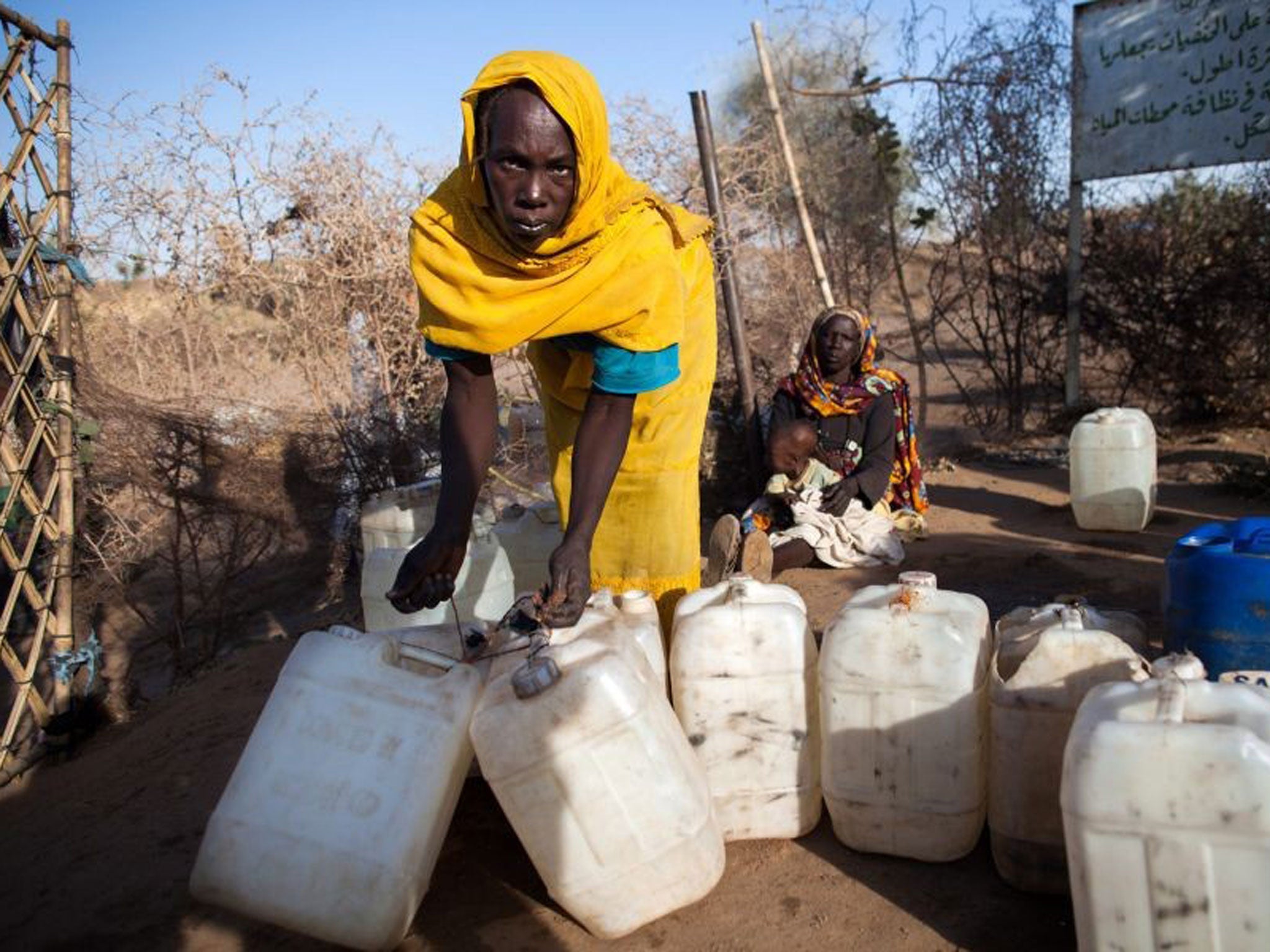On Darfur, it’s shhh, don’t mention Sudan’s President Omar al-Bashir who is accused of crimes against humanity
Cameron’s righteous words about ethnic cleansing disappeared into the ether

Remember Darfur? It’s a region the size of France in the western side of Sudan. In the past decade, an estimated 500,000 civilians have been slaughtered and four million forced into refugee camps.
Despite Sudan’s President, Omar al-Bashir, being accused of crimes against humanity by the International Criminal Court, the UN continues to treat this despot with deference. Its strategy of appeasement has been proven to prolong the agony of Darfuri and Southerners alike, but there has been no change of tack at the UN.
Those of us who have been involved in Sudan for a number of years will know that the ongoing violence in the South (it never stopped, the media just got bored) is the legacy of the botched comprehensive peace agreement (CPA) in 2005. After 20 years and an estimated two million killed, President Bashir was forced to concede the South’s right to self-rule. The cost of so-called peace in the South, though, was silence on the oil rich region of Darfur.
This theory was confirmed by an Amnesty International representative. When I asked why Darfur seemed to be absent from the agenda, I was told that the UN had issued warnings to NGOs to be silent on Darfur. Why? So as not to upset Mr Bashir, therein risking the derailment of the CPA. To which I replied: “How can a human rights organisation agree to turn a blind eye to genocide in one part of the country in order to secure a Band-Aid peace agreement in another?” I never did get a reply.
The truth is that the CPA was ill conceived and bereft of detail (in terms of land ownership involving coveted oil, infrastructure and constitution). Alas, as everyone (except UN diplomats) knows, the devil is in the detail and the devil has been wreaking havoc in the region ever since.
Last month Aicha Elbasri, a former spokeswoman for the UN African Union Mission in Darfur (Unamid), told the Dutch newspaper Trouw of her dismay at the “lies” Unamid tells about itself. She expressed frustration at willingness of Ban Ki-moon, the UN Secretary-General, to perpetuate what she described as an inherent misrepresentation of the reality on the ground.
According to the renowned US academic Eric Reeves, there were 100 eyewitness accounts of aerial attacks on civilians in Darfur. The Unamid report documented two. Despite rape and sexual violence being systematically used as a weapon of war in Darfur, the epidemic is airbrushed out of Mr Ban’s report. Carjacking and kidnapping are diligently recorded but rape is shamefully ignored.
In 2005 I attended a cross-party International Development Committee hearing on Darfur. Listening to Mukesh Kapila, a previous UN humanitarian co-ordinator in the region, give evidence, I was moved to tears. Despite his position of power, Dr Kapila’s absolute impotence resonated with me when he said: “To me, the greatest regret to my dying day will be that we failed in Darfur.” He added that UN member states, including Britain, had exerted pressure on him to downplay the severity of the Darfur crisis, which he believed amounted to genocide. When he refused to be silent, he was forced out of his job.
In order to understand the current crisis in the South, we must consider Sudan as a whole, as opposed to isolated regions and “complex ethnic tensions”. The elephant in the room that the UN (which some Sudanese officials believe to be controlled by the US) refuses to address is Mr Bashir. President Obama’s political sensitivity at being seen as anti-Muslim in the wake of Iraq and Afghanistan takes precedence, it seems, over any moral obligation to the victims of genocide.
Before Salva Kiir was elected president of South Sudan almost three years ago, the country had been pulverised by two decades of war. It bore the scars, physical and psychological, of its brutal battles. The task ahead of President Kiir was huge, and to succeed he needed as much support from the international community as possible. Since secession, he has been plagued by attacks from his neighbouring tyrant, Mr Bashir – none of which have been condemned by the UN.
My contacts on the ground are certain that Mr Bashir is one of the architects behind rebel leader (previously Mr Kiir’s vice-president) Riek Machar’s attempted coup – yet another attempt to destabilise the South while publicly claiming to support Mr Kiir.
Having been briefed ahead of a visit to Darfur in 2006, David Cameron said on his return: “This is ethnic cleansing and we cannot remain silent in the face of this horror.”
Yet, with the reins of power firmly in his grip, Mr Cameron’s righteous words evaporated into the ether. Not only did politicians abandon those they promised to protect, but their cowardice has fuelled the genocidal campaign.
While the media rightly documents the increasingly desperate events in South Sudan, the world’s eyes are diverted, yet again, from those suffering the very same – and worse – in Darfur.
Tess Finch-Lees is a writer and campaigner in ethics, discrimination and human rights

Join our commenting forum
Join thought-provoking conversations, follow other Independent readers and see their replies